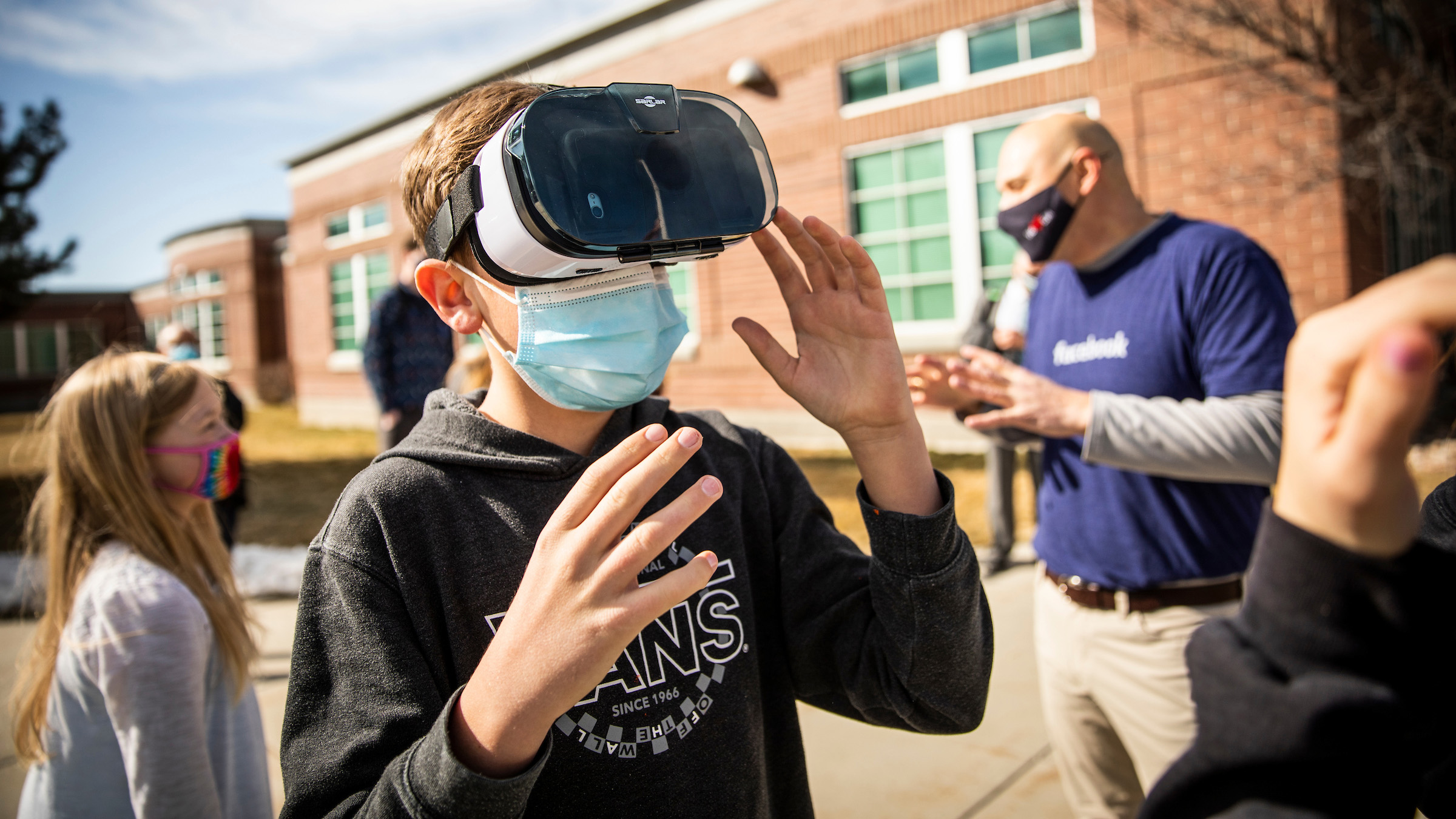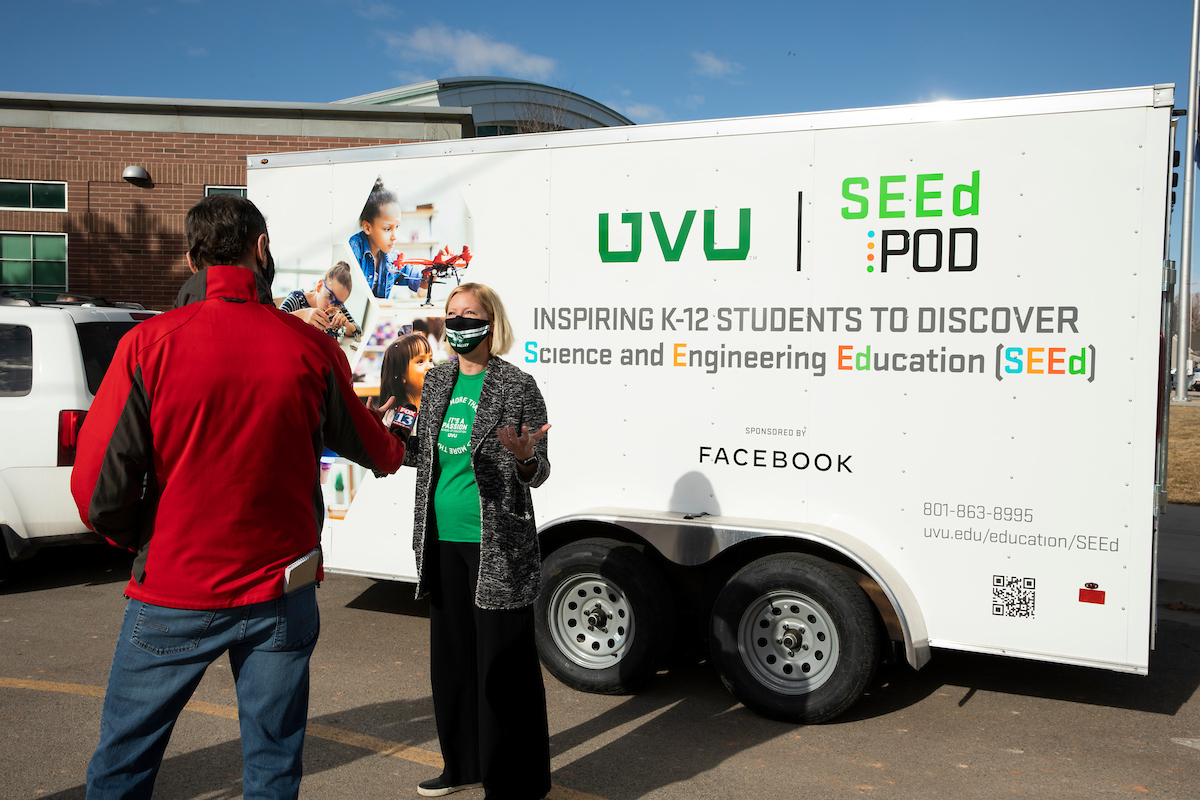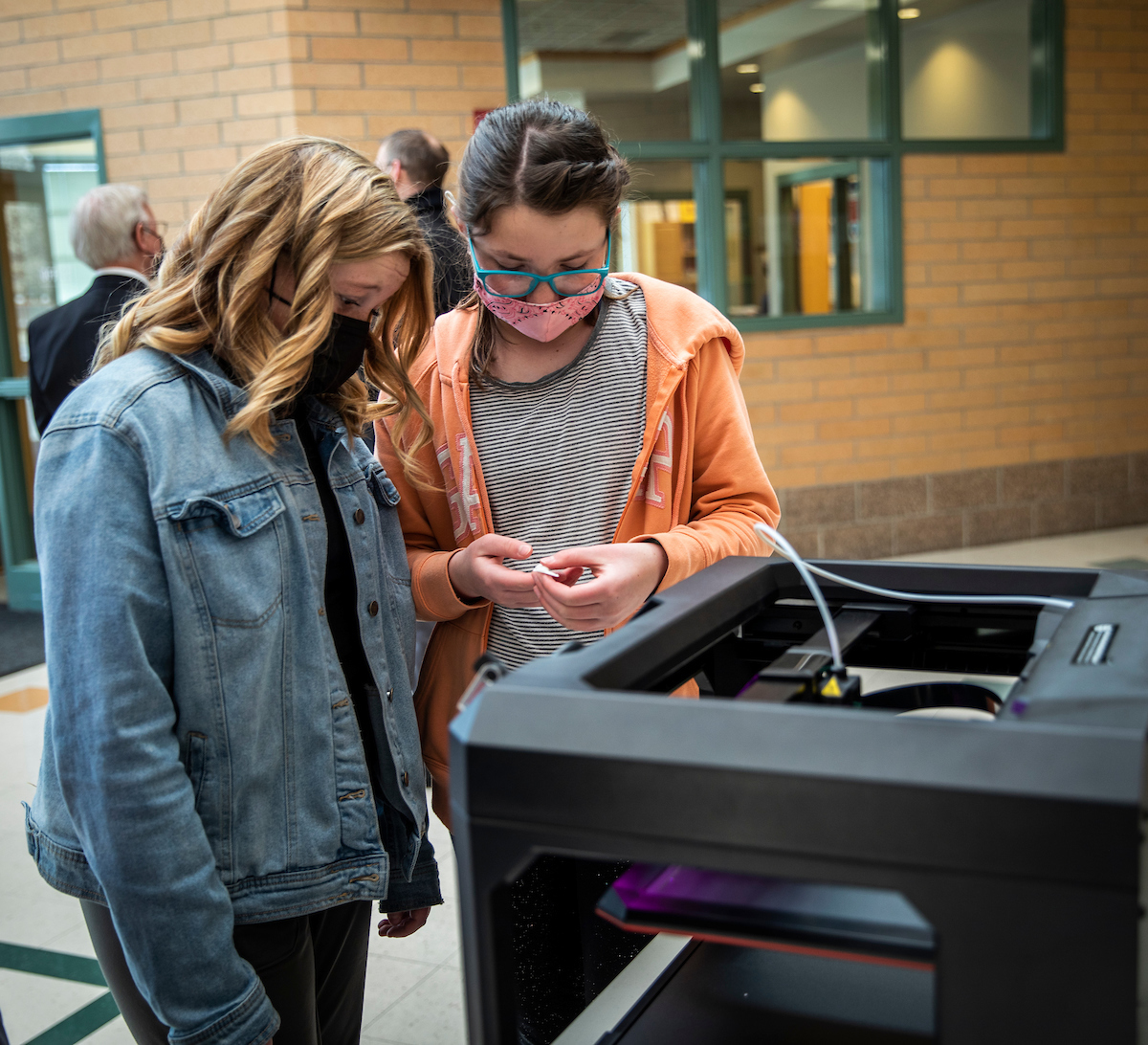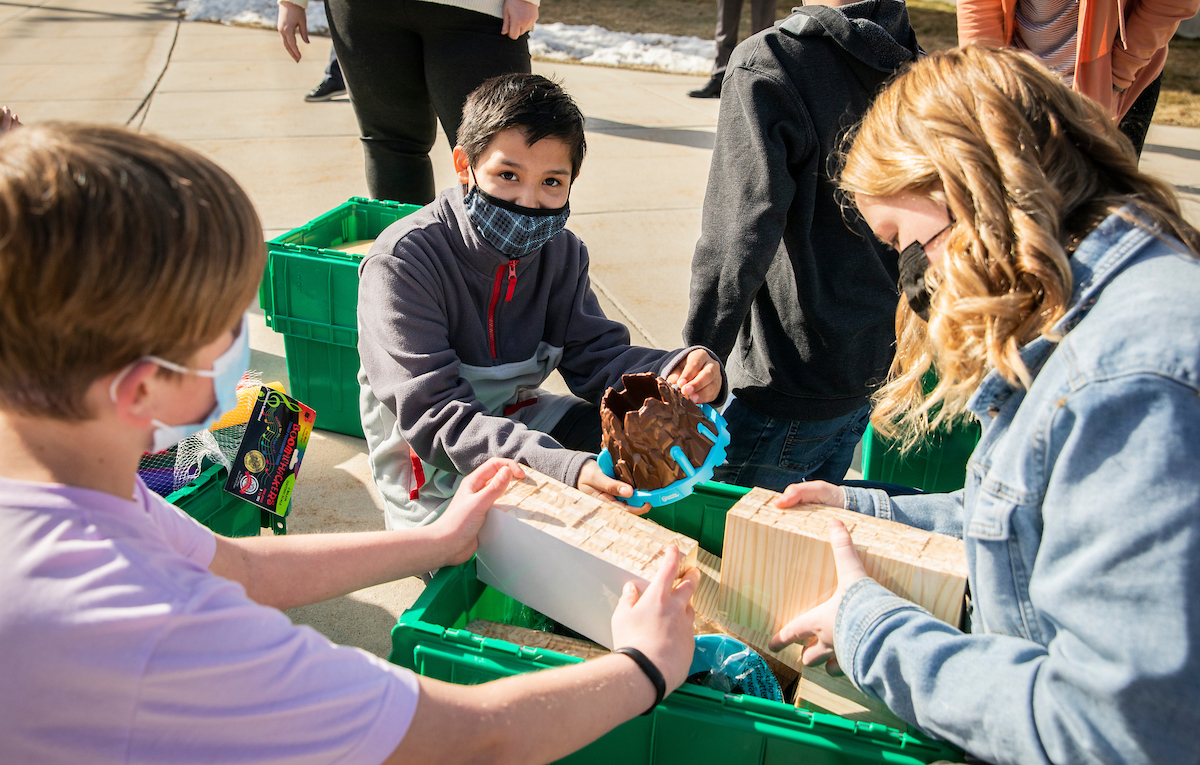Forbes Elementary School in American Fork looked like Christmas morning when sixth graders unloaded and opened a "SEEdPOD" trailer full of fun and engaging STEM teaching tools, games, and books.

AMERICAN FORK, Utah – Forbes Elementary School looked like Christmas morning today when sixth graders unloaded and opened a trailer full of fun and engaging STEM teaching tools, games, and books donated to the school as part of a new K-6 STEM curriculum that was created and funded by UVU, Facebook, USU, and the Alpine School District.
Teaching tools in the trailer included a 3D printer, a VR system, an earthquake simulator, plastic animals, volcano kits, golf balls, solar car kits, percussion drums, tuning forks, and working wind, solar, and hydro-powered models, among others.
Teachers, professors, and Forbes sixth graders helped explain and demonstrate what they found in the trailer and how the items will help the students learn about STEM-based subjects, including engineering and technology.
The SEEdPOD project began in early 2019 and involved pilot studies in Provo and Orem elementary schools, where teachers were able to complete trainings and a few lessons before the COVID-19 pandemic halted the activities in 2020. The project picked up momentum again, however, toward the end of year. The acronym “SEEdPOD” comes from Utah’s Science and Engineering Education (SEEd) standards, which combine principles of engineering with science subjects. The lesson plans and materials are stored in trailers called “pods.”
Teachers in the Provo and Alpine school districts helped review the lessons, and UVU and Facebook provided funding. Utah State University (USU) is providing research support. Other SEEdPOD trailers are scheduled to be delivered to elementary schools in Blanding, Utah, and Utah County soon.
The SEEdPOD program was the brainchild of Dean Saeed Moaveni of the UVU College of Engineering and Technology, who originally set out to create mobile learning systems called “technology pods” to get K-12 students interested in pursuing engineering and technology education and to provide specific training modules for corporate employees. He shared the idea with then-Dean Parker Fawson and now-Dean Vessela Ilieva from the UVU School of Education, and Moaveni's idea morphed into SEEDPODs with further input from Dr. Krista Ruggles, also from the UVU School of Education.
Fawson, now the USU Emma Eccles Jones Endowed Chair in Early Education and director of the Center for the School of the Future, says the undertaking will “help refine our understanding of the perceptions of local teachers and students regarding STEM in general, and engineering in particular.”
Students from UVU’s elementary education and secondary education programs significantly shaped the project, including designing the curriculum, gathering materials, and teaching lessons.
Kate Elliott, the head UVU student assistant, said the students particularly appreciated the hands-on learning opportunities. “It has definitely been rewarding to go into the classrooms,” she said. “The kids are really excited, so it’s really fun to watch them. It has been fun to teach something they don’t always get to do.”
The key researchers involved with the project include Krista Ruggles and Dean Vessela Ilieva from the UVU School of Education; Dean Saeed Moaveni and Kazem Sohraby from the UVU College of Engineering and Technology; Parker Fawson and Kimberly Lott from the USU Emma Eccles Jones College of Education and Human Services; and Ning Fang from the USU College of Engineering.
Faculty members from UVU and USU have also worked closely with local school districts to ensure that the resources will be as helpful as possible for teachers and students. According to Ruggles, many teachers have not received training on teaching Utah’s new SEEd standards due to COVID-19. This project aims to address these gaps and support local teachers in mastering the curriculum.
“It’s about learning through phenomenon-based experiences and designing solutions to a problem, which is very different from what teachers have been exposed to in the past,” Ruggles said. To assist teachers, UVU students and faculty will provide trainings and lead classroom lessons when needed.
Facebook’s support of the SEEdPOD program is a continuation of the company’s commitment to the Alpine School District and to increasing access to STEM resources in Utah. Facebook has been a part of the Utah County community since breaking ground on its Eagle Mountain data center in 2018.
“STEM curriculum and hands-on educational opportunities are incredibly important for students of today to be career- and college-ready, and we’re proud to partner with Utah Valley University and the Alpine School District to support this new marquee technology,” said William Marks, community development regional manager at Facebook.
Dr. Kazem Sohraby, associate dean of student affairs in the UVU College of Engineering and Technology, suggests that the opportunity for young students to gain hands-on experience with engineering and technology equipment will strengthen the next generation of employees and combat gaps and inequities in Utah’s STEM fields.
“When we offer this opportunity to school children from elementary all the way to high school, it will have a positive impact upon them. It will allow them to understand what engineering and technology means and determine whether this is something that is of interest to them as a career.”
For more information, see UVU SEEdPODs.


